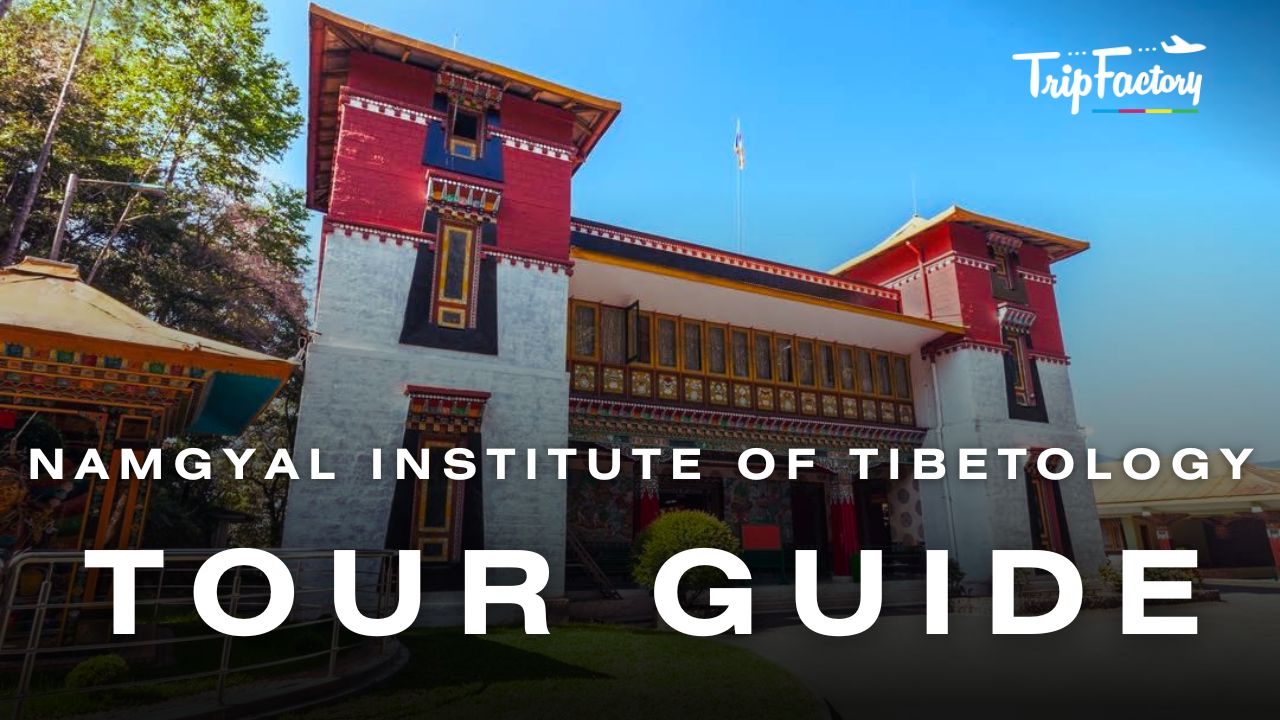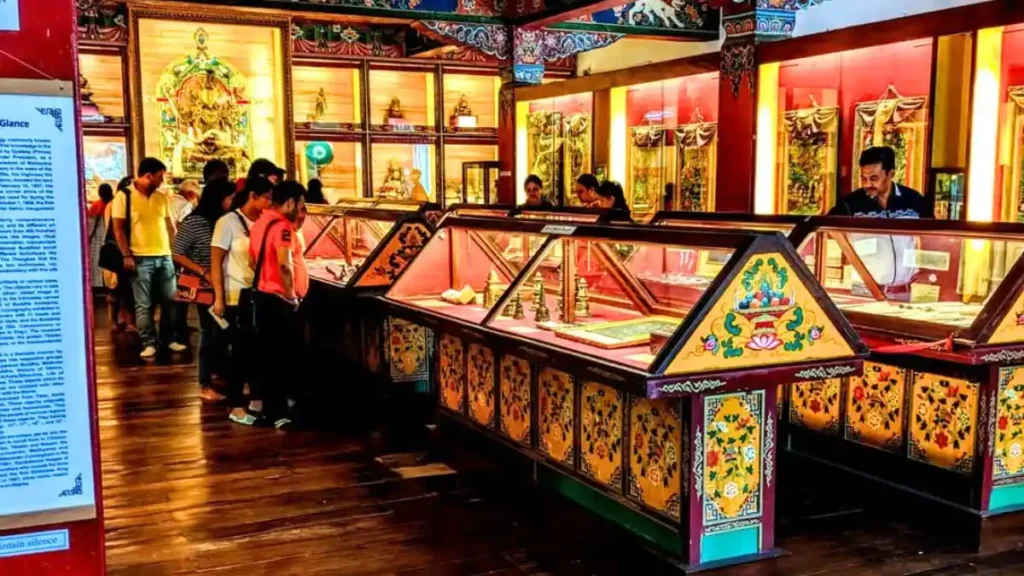Namgyal Institute of Tibetology (NIT) is a significant center that contributes to the growth of Buddhist scholarship across the globe. This institute got its name after the 11th King of Sikkim, Tashi Namgyal, who donated the land to the institute. By visiting NIT you will gain significant insights on the socio religious norms of Tibetan Buddhism. The main building of the NIT reflects the elegance of the Sikkimese architecture.
In the year 1957, Dalai Lama laid the foundation stone of this institute and in the year 1958, Jawaharlal Nehru officially inaugurated this institute. The institute also houses a museum that preserves a number of ancient Tibetan articles, statues, paintings, and murals. The first attraction to witness in the NIT is a huge silver image of Manjushri, the “Gentle Glory” Bodhisattva that is related to insight and knowledge that was brought from Tibet. You can also witness glass cases containing thangkas, idols, amulets, coins, ritual objects, and angling.
There are also 11th-century palm leaf manuscripts and 12th-century Chinese manuscripts that are put on display for the public. The bronze statue of Namgyalama, a long-life deity that has three faces and eight arms, is another piece of art present in the museum. On the first floor of this institute is the library, where you can find tantric texts of all four sects stored in a row.
Moreover, this library also has over 60,000 non-canonical and canonical Tibetan translations of sacred Buddhist literature. There are also options for photocopying pages of certain books present in the library.
Table of Contents
How to Reach
Namgyal Institute of Tibetology (NIT) is located in Gangtok and will take about 25 minutes to cover a distance of 2.2 km. You can hire a taxi to reach the spot. NIT is open to the public from Monday to Saturday and the timing is between 10 AM to 4 PM you also need to pay an entry fee worth ₹10 to enter this institute.
Here’s the information presented in a table format:
| Location | Details |
|---|---|
| Institute Name | Namgyal Institute of Tibetology (NIT) |
| Location | Gangtok |
| Distance from Gangtok | 2.2 km (Approximately 25 minutes by taxi) |
| Mode of Transport | Taxi |
| Visiting Hours | Monday to Saturday, 10:00 AM to 4:00 PM |
| Entry Fee | ₹10 |
Best Time to Visit
The best time to visit Namgyal Institute of Tibetology is between March to June and September to November, as during these months the weather in Gangtok remains pleasant and you will get a subtle temperature to help you explore the NIT.
Travel Tips
You must take off your shoes before entering the Namgyal Institute of Tibetology. You must not capture photographs without obtaining permission from the monks.
Frequently Asked Questions
What is the meaning of Tibetology?
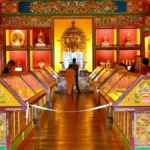
Tibetology (Wylie: bod-rig-pa; Tibetan: བོད་རིག་པ།) is the study of all things relating to Tibet, including its politics, language, culture, history, and religion. It also refers to the gathering of Tibetan artifacts of religious, cultural, and historical importance.
In which year was the Institute of Tibetology established?
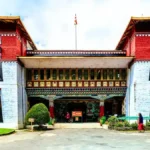
1 October 1958
Is Sikkim a Buddhist country?
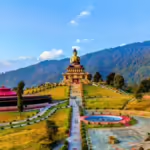
Hinduism is the most common religion, with a sizeable minority practicing Vajrayana Buddhism. A substantial portion of Sikkim’s income comes from tourism and agriculture.
Is Sikkim a Hindu country?
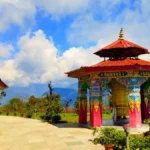
With 75 Buddhist monasteries, the oldest one dating to the 1700s, is located in Sikkim. Since the advent of the Hindu people from Nepal, Hinduism has been the predominant religion in the state; now, 64% of the entire population is believed to be a Hindu. Hindu temples are many.

